Archive
11 November 2020
TU Delft and NRL host the “Workshop on Sustainable Aviation Fuels for Aircraft Propulsion”
On October 15th, 2020 - the Delft University of Technology (TU Delft) in collaboration with the Netherlands Aerospace Center (NRL) hosted the “Workshop on Sustainable Aviation Fuels (SAF) for Aircraft Propulsion”. During the workshop, experts from the aviation and technology sectors, as well as representatives from NGO’s and research institutes gathered to share their vision and expectations about SAF production and availability for the aviation sector in the 2050-time horizon.
10 September 2020
50.000 euro NWO grant for four researchers of Applied Sciences
The Board of NWO Domain Science has awarded four researchers of Applied Sciences in the NWO Open Competition Domain Science – XS. Xiaozhou Ma, Dimphna Meijer, Caroline Paul and Toeno van der Sall will all receive 50.000 euros for their various projects.
28 May 2020
Awards for three researchers of AS
14 May 2020
How copper can damage a cell
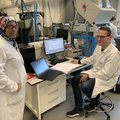
Copper is important for many processes in our body. Among other things, it supports the production of red blood cells, metabolism, and the formation of connective tissue and bones. Copper is also known to play a role in diseases such as cancer, diabetes and Alzheimer's disease. Unfortunately, we do not yet know exactly what that role entails. Researchers from Delft University of Technology and the Polish Academy of Sciences have now discovered a new piece of the puzzle. In order to be able to do its work, copper binds to different types of proteins in the cell. And although the complexes that are formed in this process are not harmful in themselves, temporary 'intermediate forms' appear to arise during the binding, which can lead to damage to the cell. The results of the research have been published in Angewandte Chemie.
30 April 2020
Investment of 14 million for better use of micro-organisms
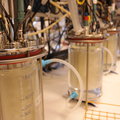
17 April 2020
European Commission greenlights large international water project

The European Commission has signed the grant agreement for WATER MINING, a 17 million euro project aimed at demonstrating innovative water resource solutions. As part of the project, demonstrations in Cyprus, Spain, Portugal, Italy and The Netherlands will be built to show novel efficient ways to reclaim nutrients, minerals, energy and water from industrial and urban wastewater and seawater. The public-private consortium consists of 38 public and private partners and 4 linked third parties in 12 countries. It will be led by Delft University of Technology (TU Delft).
10 March 2020
Researchers organically engineer solar cells using enzymes in papaya fruit
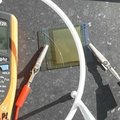
Titanium dioxide (titania) thin films are commonly used in various types of solar cells. The fabrication methods that are currently used to create such titania films require high temperatures, as well as expensive, high-end technologies. Researchers at Delft University of Technology (TU Delft) have now developed a fully organic method to engineer porous titania thin films at relatively low temperatures.
03 December 2019
All Pilsner yeast strains originate from a single yeast ancestor
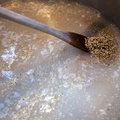
Pilsner yeast, the well-known micro-organism that brewers use every year to make hundreds of billions of litres of pilsner and other lagers, came into being 500 years ago through an accidental encounter between two species of yeast. The yeast strains now used to brew pilsner can all be traced back to that time. This is the conclusion reached by TU Delft researchers based on extensive DNA analysis.
25 November 2019
Mark van Loosdrecht elected as member of the Chinese Academy of Engineering
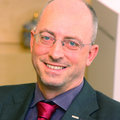
The Chinese Academy of Engineering (CEA) has announced that it has elected Mark van Loosdrecht, Professor of Environmental Biotechnology, as a member.
11 September 2019
Cable bacteria: Living electrical wires with record conductivity
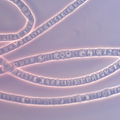
Bacteria that power themselves using electricity and are able to send electrical currents over long distances through highly conductive power lines. It almost sounds like the way we charge our TVs and refrigerators, and may seem hard to believe, but it is a recent discovery by a team of scientists from the University of Antwerp (Belgium), Delft University of Technology (Netherlands) and the University of Hasselt (Belgium). Centimeter-long bacteria from the seafloor contain a conductive fiber network that operates in comparable way to the copper wiring that we use to transport electricity. The highly conductive fibers enable a completely new interface between biology and electronics, providing a prospect for new materials and technology.